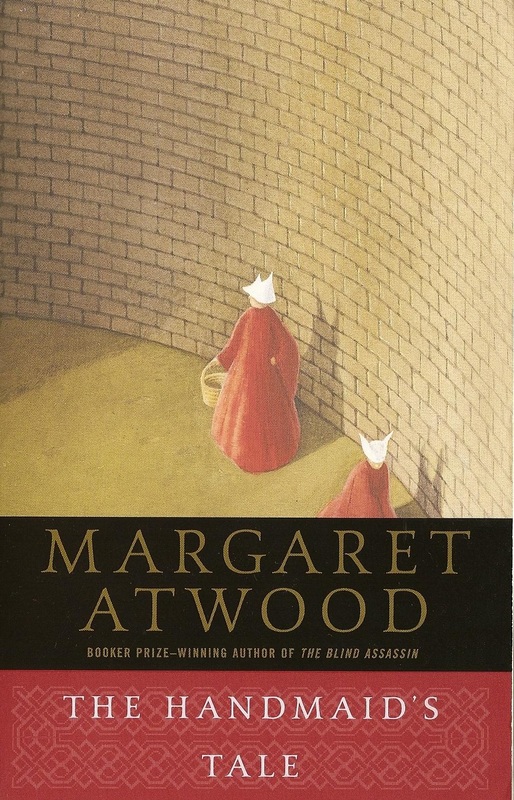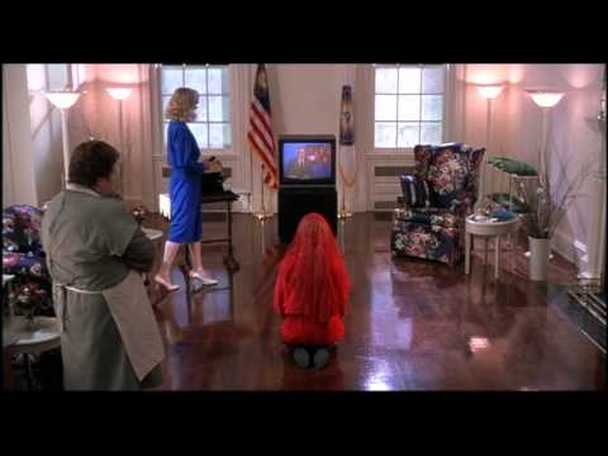|
by Srijon Mukherjee Dystopian fiction is one of my favorite genres of literature. It’s entertaining, and scarily relevant at times, which makes it all the better and worse for me. Better, when I read, worse, when I think about what I’m reading. Better again, when I feel that way, it’s a sort of chill you can get addicted to. And so I picked up Margaret Atwood’s ‘The Handmaid’s Tale’. Now, I’d read ‘Oryx And Crake’ by her before, so I thought I was ready for whatever the book would throw, or speculate at me. I wasn’t. I wasn’t reading plausible and scary futuristic outcomes like most of the books I read: I was reading what can easily be described as just an exaggerated version of status quo, as a friend of mine so eloquently put it. ‘The Handmaid’s Tale’, published in 1985, faced a lot of controversy and was challenged numerous times, with many objecting to its use of explicit sexuality, profanity, violence, suicidal themes, and its interpreted anti-Christian themes. It deals with a futuristic totalitarian government, that of the Gilead, who stealthily overthrew the constitution by killing the President and suspending the constitution, all done so subtly, that the coup was almost unexpected: Their earlier attacks were all blamed on known terrorist groups at the time . It then sought to gradually target the women of the country and take away all their rights. This they started by changing the money system of the country, getting rid of paper and coins and making everything digital, accessible by a card with the gender as a field. Next, all the money on the women’s cards were suspended and transferred to the male’s accounts, thus, taking away their money. Soon, the number of gender crimes were increased and almost all of these blamed and condemned only the women. This, along with many other actions created a society where the entire function of women was only to breed, and to help breed. Women were divided into four sections or castes, if you will: The handmaids,dressed in red, who were made to breed for the Wives unable to conceive for their spouse Commanders, the Marthas, dressed in green, who were only servants suitable for domestic services, the Aunts, older, infertile and unmarried, who disciplined and controlled the handmaids, constantly brainwashing and romanticizing the idea of giving up their bodies to act as wombs, sometimes even using their own Biblical interpretations to put for their desired point, and the Econowives, who married normal men who were not of any high position. There was nothing new to the duties and responsbilities expected of them either, that of domestic duties and bearing children. Feminists, lesbians, nuns who refused to convert, other women who did not adhere to the rules issued by the Gilead, were all declared ‘Unwomen’, and banished to work in the colonies, an area full of harmful radiation which certified a painful death. The narrator was a handmaid in these times, assigned to one of the Commanders who was part of the team of architects that designed this whole system. The book focuses on her experiences, and her disturbing struggle to maintain her individuality and memories from the life she led before the oppression started. A number of the features and actions taken by the Republic Of Gilead, while, very typical of an efficient totalitarian state, also bear a horrific but less pronounced resemblance with the current state of affairs in the world outside the book. Let’s look at a few instances. Here’s an example of a session the handmaids had with the Aunts: “Two-thirty comes during Testifying. It's Janine, telling about how she was gang-raped at fourteen and had an abortion.But whose fault was it? Aunt Helena says, holding up one plump finger. Her fault, her fault, her fault. We chant in unison. Who led them on? She did. She did. She did. Why did God allow such a terrible thing to happen? Teach her a lesson. Teach her a lesson. Teach her a lesson.” In a way, these sessions with the Aunts, were to ‘Handmaid’s Tale’, what ‘Two Minutes Hate’ was to George Orwell’s famous classic, ‘Nineteen Eighty-Four.’ Both aimed to brainwash their respective subjects, and channel and use to their benefit, the subdued anger that was ironically, directed at them. While with ‘Two Minutes Hate’ , the totalitarian government aimed to re-direct their hidden angst towards their enemies, the Aunts, with constant lessons and sessions like these, aimed to drive into their hearts a common stance that gradually rids them all of their own individual identities, and creating a mindless collective identity,like that of sheep. What’s disturbing is how,this culture of victim blaming is not a trait characteristic to extremely dark dystopian novels meant to scare the reader: in fact, this is an act we’re becoming more and more used to in spotting, whether it be our friends, or even the ones running our country. Especially the ones running our country. “I almost gasp: he's said a forbidden word. Sterile. There is no such thing as a sterile man anymore, not officially. There are only women who are fruitful and women who are barren, that's the law. And this, says it all about the hilariously pathetic condition of the women that Margaret Atwood imagined. It wasn’t just the women in the lower ranks, and the handmaids that were being punished, all women payed for what was their disorder, and indirectly for what was a problem with the men related to them, since the whole idea of the men being held accountable was completely abolished by the law. So, if a Commander was actually infertile or dare I say it, ‘sterile’, his inability to conceive with his wife would immediately be attributed to his spouse being ‘barren.’ He would then, be issued a personal handmaid to ‘breed’ with. The wife would have no say in the matter, in fact, they’d just be luck that they were privileged enough to not be punished and sent to the colonies for ‘their’ failure. Now as expected, the handmaid wouldn’t be able to conceive with him either, and she’d be assigned to a different person, while the Commander would be assigned a new handmaid. If a handmaid failed to conceive on three occasions, the state would describe her as ‘barren’ and banish her to the colonies. Later, it was revealed in a futuristic study within the tale, that a lot of these Commanders were had become sterile due to excess radiation or some unknown disease. While the situations now, are not as gut wrenchingly pathetic as the narrator’s, there’s no denying that we’re not familiar with the stench of misogyny in the book. Years and years of discrimination, gender roles, and harmful stereotypes, have conditioned us, and made certain that it’s a smell as native and basic to us, as, say, our mother’s milk. The book however, is not just limited to relatable misogyny and patriarchal horror. The Republic Of Gilead is a theocracy, as evident in the language they create and force their subjects to adhere in. Marthas are a direct reference to the New Testament, police are called ‘Guardians’, and soldiers: Angels. Even the stores and various car models have names that are biblical references. The government, while obviously acting on an intent to control and bring up birth rates, is not open about it, and instead uses twisted interpretations of the Bible itself to justify its action. Its politics are backed by its religion and vice versa, a feature that we in the current world are all too familiar with. Though not explicitly mentioned in the book, it’s very likely, that none of the men or women in the books were of color, except maybe the two Marthas. If this holds true, then it’s safe to assume that all the remaining were either killed or sent to the colonies. The Jews were forced to either convert, or sent to the colonies. Any Jew found in the state was instantly killed. As obvious from their interpretations of the Bible, and need for higher birth rates, homosexuality did not bode well with the government at all. The narrator’s lesbian best friend, Moira, was given two choices: To either be a handmaid, or work in the colonies. (Exaggerated version of status quo, indeed.) And now the main similarity between the book’s world and our world: The importance of birth rates. The republic’s intense concerns with the birth rate were not just limited to their own struggle in a fictional world: It was actually very typical for abortion to be declared a crime in the early stages of a dictatorship. Birth over the years leads to new youth, and youth is essential for an already existing government to continue existing. Also important, was to monitor and account for the new generation, so as to prevent rebellion in the future. Breeding camps were not too uncommon a feature in prevailing dictatorships. And that’s where the line between fiction and reality is so heavily smudged: every step taken by this beast of a government is accounted for, by the past and the present, and what we have in our hands is not a dystopian novel by a popular writer, but, rather, a warning telling us how the future may unfold.
Well, it used to be a warning. Now it’s just a collection of words sneering and jeering and mouthing ‘canon' at us.
Follow us on Facebook and Instagram to be notified whenever we release new articles.
Do you use an RSS reader? Even better!
0 Comments
Leave a Reply. |
Categories
All
Archives
December 2022
|


 RSS Feed
RSS Feed
